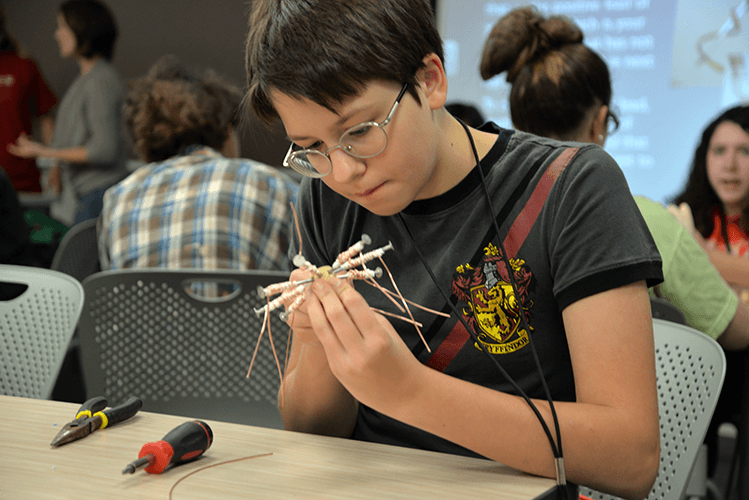Soaring High in Engineering (SHE)

2024 Theme: World of Wizardry
Step into a world where the ordinary becomes extraordinary, and innovation knows no bounds. Our camp offers a magical haven for inquisitive minds in 7th and 8th grade, where the wonders of engineering meet the mysteries of wizardry.
Upon arrival, aspiring sorceresses are greeted by our team of seasoned engineers, ready to guide them through a week of enchantment and discovery. Each camper is sorted into one of the four legendary houses where friendships are forged and collaboration thrives.
Throughout the day, campers dive into a variety of immersive workshops and challenges held within the halls of our mystical castle. From designing levitating broomsticks to concocting potions with magical properties, every activity sparks creativity and critical thinking, empowering campers to unleash the full potential of their imagination.
At the heart of our camp lies a commitment to nurturing confidence, resilience, and a passion for learning in every camper. Through teamwork and determination, they discover that the power to shape their destinies lies within their hands, wands, and brilliant minds.
Join us this summer for an unforgettable journey into the World of Wizardry, where dreams take flight and the magic of engineering awaits!
Eligibility and Application
All students entering the 8th or 9th grade during the 2024-2025 school year are eligible to apply.
Application, registration, and payment (or scholarship documentation) will all be completed in one step for 2024. Once complete, you will be set for attendance and will receive additional details approximately 3 weeks prior to arrival.
*STEM education researchers have devoted substantial effort toward developing, implementing, and assessing strategies that encourage the persistence of women, especially those from underrepresented groups in STEM fields. While our Soaring High in Engineering and GirlTREC camps are designed to integrate these proven pedagogical strategies that are especially aligned with the needs and interests of young women, we welcome any student to participate in camp activities.